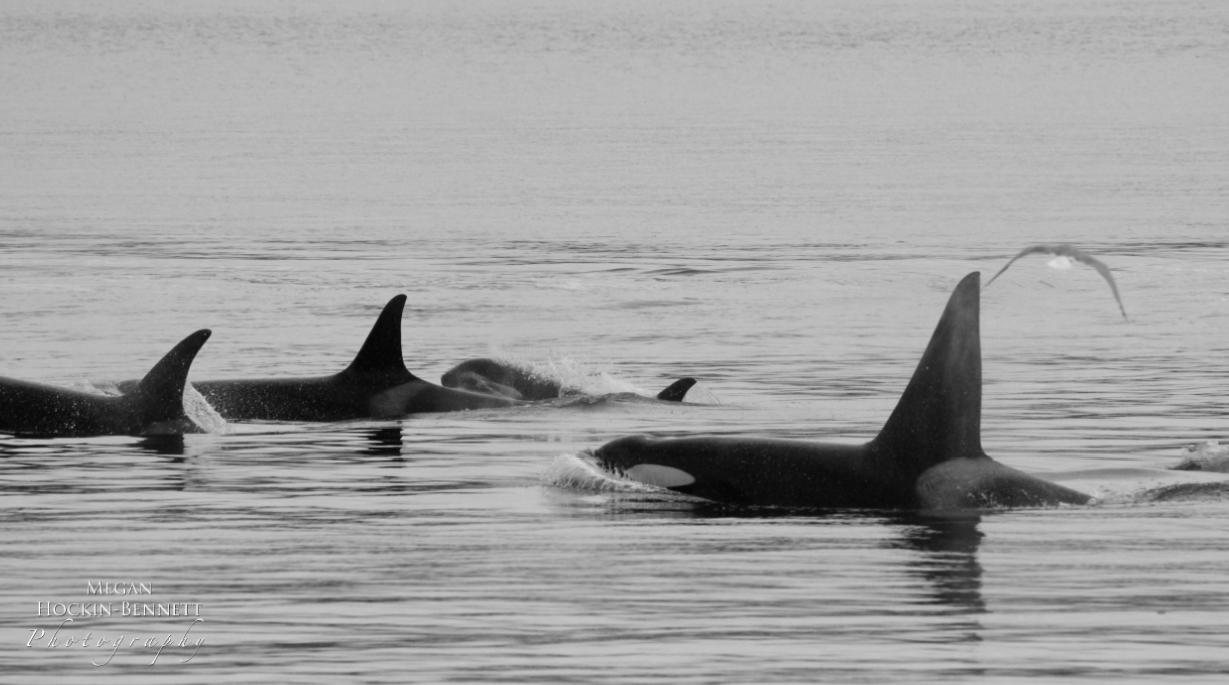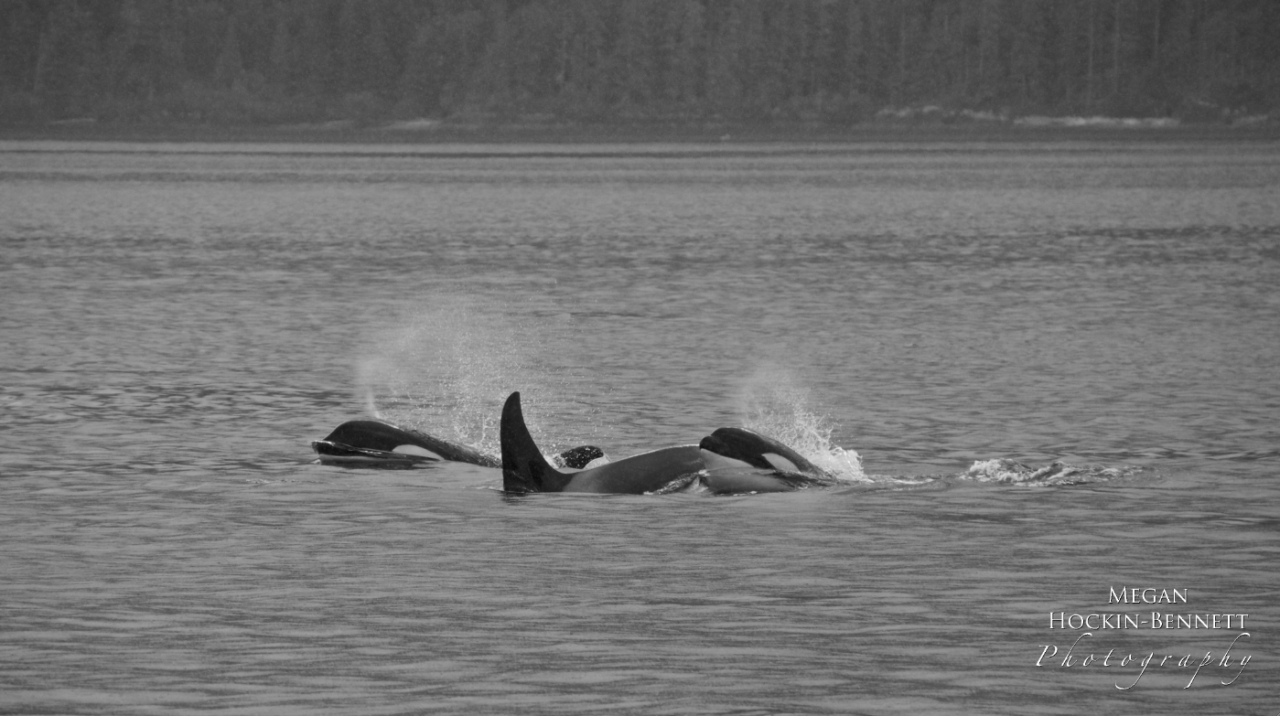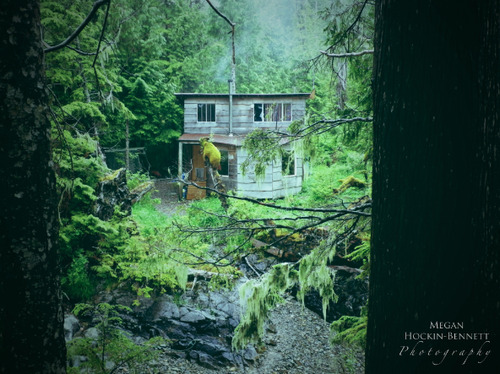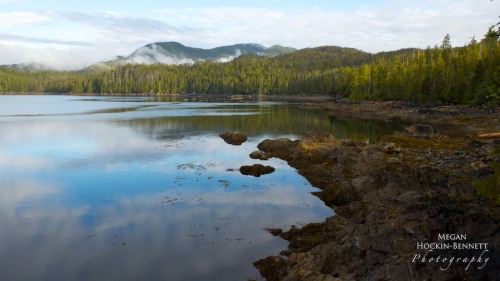Footage supplied by: Natalie Lucier
Hello! I’m Kirsty – a forthcoming marine mammal biologist, and I am starting this crowdfunding campaign to ask for your support. It has been my life-long ambition to specialise in marine mammal science, and this might be perceived as clichéd but I would like to enter this discipline to make a difference. I have always had aspirations of becoming a scientist, and I cannot imagine entering another profession. After graduating from the University of Plymouth with a degree in Wildlife Conservation, I was delighted when I made a successful application to the University of Aberdeen to study MSc Applied Marine and Fisheries Ecology, which is an interdisciplinary degree. I am extremely passionate about wildlife but passion alone cannot conserve nature; conservationists require an expertise in pure and applied science that reinforces this discipline.
My aspiration is to continue onto PhD level to research the vocal behaviour of killer whales Orcinus orca, specialising in the cultural transmission and evolution of pod-specific dialects, and gene-culture co-evolution of killer whale populations. I have a unique and rare opportunity to investigate this topic for the Northern Resident Killer Whale community, in British Columbia, Canada, for my masters’ thesis, which really excites me. As you can imagine, I am both ecstatic and incredbily thrilled. Therefore, with your help, I cannot wait to procure my place in September, to have a whale of time.

Photograph by Megan Hockin-Bennett
Becoming a postgraduate student will be a life-changing opportunity, and I will become proficient at the technical and analytical skills (advanced statistics, Matlab and R statistical software) that are required as a researcher, to delve into new or existing biological problems, to confirm facts, and to reaffirm the results from previous research.
This masters programme will equip me with the skill-set needed to ask challenging and meaningful biological questions that are pertinent to the conservation of marine mammals. I intend to devote myself with strong focus to this programme, which specialises in marine ecology, resource management, spatial distribution of top predators and molecular ecology. Additionally, over the last four years, I have also been developing my proficiency in cetacean bioacoustics through independent research, and I intend to develop my skills to an advanced level.
Why I want to be a marine mammal biologist?
My ambition is to pursue a career in applied science for the conservation of marine mammals and their habitats through research, with a particular interest in designing mitigation and conservation-management strategies for policy making agencies. In many cases, assessments for particular marine mammal populations are insufficient to assign an accurate conservation status, the effects of human activities on them, and the status of surrounding habitats that they reside therein. Many marine mammal populations are designated as threatened or endangered due to human activities. As such, abundance estimates have contracted from original estimates due to ongoing problems and emerging threats such as human induced sound, environmental pollution (pesticides and industrial by-products), disease and bio-toxins, historical commercial whaling, ship strikes and fisheries. Declines of 50 % or more may go undetected for particular populations under current monitoring systems. After academic training, I aspire to make a contribution to the pre-existing body of research that may assist with the development of measurable and robust management strategies for conservation objectives, which are aligned with the goals of the Marine Mammal Protection Act.
“The love for all living creatures is the most noble attribute of man.” ― Charles Darwin

Photography by Megan Hockin-Bennet
What I am doing to save money
However, the tuition fees and living costs are not as exhilerating. To save money I have been working as a full time waitress, and even with my average monthly wage and tips, I simply will not reach my financial target. I am trying my very best to acquire the funds for my tuition fees by temporarily moving into a youth hostel, and by living modestly to reduce average living costs, as well as to save. However, the cost of rent, food, existing debts, and generic living costs have a tendency to eat away at my earnings. Unfortunately, despite my best efforts, I have been unable to raise sufficient monies, and I cannot currently afford to pay my own way through this graduate course. I feel terrible that I am resorting to crowdfunding as a final resource, but my course starts soon, and the situation is becoming desperate. I can't seem to find a source that will help me fund my pursuit for knowledge. Recent applications through traditional routes (bursaries and grants) have been unsuccessful, and I am still waiting to hear back. I have also just started to make applications for industrial scholarships with companies that produce and distribute hydrophones. However, these financial opportunities are scarce. Moreover, I applied for a graduate loan to cover my living costs, but I was turned down because I will not be earning enough to cover the monthly payments, while studying. I am now searching for alternative part-time employment in Aberdeen. Lamentably, the combined cost of tuition fees and the average cost of living in Aberdeen, is simply unworkable, and it would be heartbreaking to give up my place, after working so hard by supporting myself through my undergraduate degree.
Aberdeen is now considered as one of the most expensive places to rent in Scotland with and average rent of £1000.00 per month .
""Numbers of rental properties advertised in Aberdeen city centre have fallen by nearly 50% this summer, while the continual growth of the oil and gas industry has seen the numbers of people locating to the city grow.
How you can support my campaign
Words cannot express how deeply appreciative I will be if you help me reach my objective, which is to qualify as a marine mammal biologist, in order to work in the conservation industry. I can only achieve this goal by raising £14,982.01 (£14,475.37 + £506.64 - 3.5 % Paypal fees) with the assistance of generous donations, no matter how small or large. If you decide to support me, I would like to thank you in advance for your thoughtfulness and benevolent nature.
Here is a break-down of costs
-
Tuition fees -£3,400.00. So my "minimum" is £3,519.00, which is an amalgamation of the tuition fees and 3.5% to cover PayPal fees.
-
Living expenses - £9000.00 (Average cost over 12 months - I will live humbly, with moderation).
-
Bills and the average cost of living in Aberdeen: Average bills per household in Aberdeen = £209.89 x 12 months = £2509.08 (House share 4 people: £2509.08/4 = £627.27 per year = £66 month). These averages were also calculated from gocompare.com
-
Recommended core text books: £468.98
-
Acoustic interactive sound analysis software (Raven Pro ‘1.5’ software): £60.12
-
Computer, external hard-drive, printer, printing cartridges and stationary (approx 12 month estimate): £800.00 = £15 per week (My computer is on the verge of breaking)
-
PayPal fees (3.5%, applied to successful projects) - £506.64
If you feel that you can’t make a contribution, I would be genuinely thankful if you could please share this page with your family, friends and colleagues – all support is appreciated to the highest degree.
How my interests in marine mammals developed
My fascination with the ocean, conservation biology, marine mammal science, and constituent ecosystems developed through early experiences of rock pooling, and by reading `Orca, The Whale Called Killer’ by Erich Hoyt. I volunteered at various veterinary surgeries as a teenager, however, I craved to escape the urban sprawl and settle down in the countryside to be closer to the ocean, where the air is cleaner, life is quieter, and healthier, so I moved to Cornwall to study FdSc Zoological Conservation, at Cornwall College Newquay. At this time, through sheer determination and for my love of wildlife, I embarked on various internships to acquire practical experience to give myself an edge, involving seal rehabilitation at Gweek Seal Sanctuary, Lenie t’ Hart Zeehondencreche, Scottish Seal Sanctuary, as well as Whipsnade Zoo and Cornwall Bat Hospital.

However, my experiences with captive species taught me that I wanted to study natural populations in the wild. It is my all-embracing passion to study killer whale bioacoustics, and I aspired to experience this majestic, intelligent and playful species first-hand. By following this passion, I have worked incredibly hard in various jobs - caring for the elderly and cancer patients in the community, waitressing, a telephonist in a contact centre for various campaigns, and a bar person - to support myself throughout my foundation and undergraduate degree, and during my summer breaks to attain this goal. As a result, my dream finally came true, and I self-funded three research assistant internships, to two whale research facilities called OrcaLab, with Dr Paul Spong and Helena Symonds, and CetaceaLab with Janie Wray and Hermann Meuter, in British Columbia, Canada.

Photography by Megan Hockin-Bennett
Ultimately, this is where my passion to unravel the acoustic behaviour of the orca began. OrcaLab conducts non-invasive research on wild orca populations within their core-habitat, without contact or interference via a hydrophone network. Therefore, the movement and vocal behaviour of three types of orca (resident, transient and offshores) are monitored all year round.
CetaceaLab is positioned on Gil Island in the "Great Bear Rainforest", which is proposed critical habitat for increasing numbers of humpback and fin whales, as well as killer whales. Over the last decade, Janie Wray and Hermann Mueter have dedicated their lives to develop a photo identification catalogue and an acoustic library for resident species that were mentioned previously.
The "Great Bear Rainforest" stretches for more than 250 miles along the coastal mainland, in British Columbia, and is proposed critical habitat for increasing numbers of humpback and fin whales, as well as killer whales.

Photography by Megan Hockin-Bennett - Humpback whale foraging
The is a complex ecosystem comprising of ocean, mountains, forest and rain, this is a land of mist that shrouds valleys and glacier cut fjords, old growth forests and rich streams. The forest is part of the largest remaining temperate rainforests left on Earth. Living in the wilderness, while studying the whales has irrevocably shaped my life. I came into contact with real life issues that resident species encounter. One notable threat is the proposed oil tanker routes associated with the Enbridge Northern Gateway Pipeline. From the South, vessels will travel via Queen Charlotte Sound into both Laredo Sound and Laredo Channel followed by either Whale or Squally Channel into the Douglas Channel. This region is also a proposed designated critical habitat for whales and it is unthinkable to envisage 225 very large crude carriers — referred to as VLCCs — per year, which are on average 1,000 feet long — the same height at the Eiffel Tower — carrying 450 million barrels of crude oil from Alberta to Kitimat through a marine ecosystem that is essentially intact.

The Great Bear Rainforest houses species such as cougars, wolves, salmon and the Kermode Spirit Bear, a unique subspecies of black bear, that all rely on the coastline for their survival. In 2012, I gave a statement at the joint review panel, in Port Hardy to express concerns about this controversial and widely debated project. Since then, I have been fixated on becoming a scientist for conservation purposes.
Even though I am not Canadian, I feel a deep sense of attachment and belonging to the Great Bear Rainforest, having lived, researched and socialised with the First Nation community.

Photography by Megan-Hockin Bennett
However, largely due to the dedication of scientists at the Department of Fisheries and Oceans, in Nanaimo, and Janie Wray and Hermann Mueter, this growing body of historical data may potentially be the key to establish Caamano sound and Douglas channel as critical habitat for the protection of resident whale species.

Photography by Lisa Larsson
Why am I asking for Help?
I have always been conscious that funding a master’s degree is expensive. However, I am stunned with how limited funding opportunities are for students aspiring to become postgraduates. I have attempted to make an application for a graduate loan; however, I was turned down. Furthermore, I received the offer to study at Aberdeen after the deadline date for specific scholarships and grants, which I was eligible to apply to. I am continuing to apply for bursaries and charities; however, so far, I have been unsuccessful. I have been working full time hours to save money, but I am currently on minimum wage, and I have additional costs such as debts, rent and food to take into consideration, therefore, saving significant amounts of money is complicated. Moreover, I have started to look for part time work in Aberdeen to support myself.
I have an entrepreneurial, motivated and determined personality, and I am going to find a way to overcome these obstacles, despite all odds, partly by structuring my life toward working for these larger goals. My strengths are that I am stubborn, strong willed and energetic, and I am not afraid of hard work. Therefore, I am going to dive into this situation, even in the face of uncertainty. My attitude is to keep on challenging myself, and I perceive university as one long education, where every day you learn something new. As a result, I will immerse myself into this masters programme with renewed energy and commitment.
“Whatever you can do, or dream you can do, begin it. Boldness has genius, power, and magic in it!" - Goethe
About me
I have a great curiosity for science, and I wish to fully explore my world by having inquisitive and quirky adventures, wherever I go. My favourite pastimes are hiking, kayaking, bouldering, diving, snorkelling and camping in nature. I love being surrounded by a diversity of different landscapes, each has its own unique flavour, and no two areas are comparable. These activities are not only the best and most exciting ways to maintain fitness - climbing hills, walking longer distances, going on paddling expeditions and diving – but these are terrific ways to challenge myself. These activities provide unique opportunities to observe wildlife, and in my opinion, there is no greater experience than an unexpected encounter.
Finale
In conclusion, words cannot describe how thankful I feel for both your patience and time by reading the details of this campaign. I hope you can catch a glimpse of my passion for marine mammal science and conservation biology, in addition to how much the achievement of this degree means to me. If you decide to support my campaign, this is a heartfelt `thank you’ for your contribution. Once I have graduated, a new journey begins, and this campaign will remind me of everyone who has touched my life, with the gift of their presence and acknowledgment.
Reference site for project picture:
With many thanks to: Campbell Anderson, Megan Hockin-Bennett, Natalie Lucier, Dr Paul Spong and Helena Symonds, Janie Wray and Hermann Mueter, Katri Hastings, Galen Brown and James Gillard.

